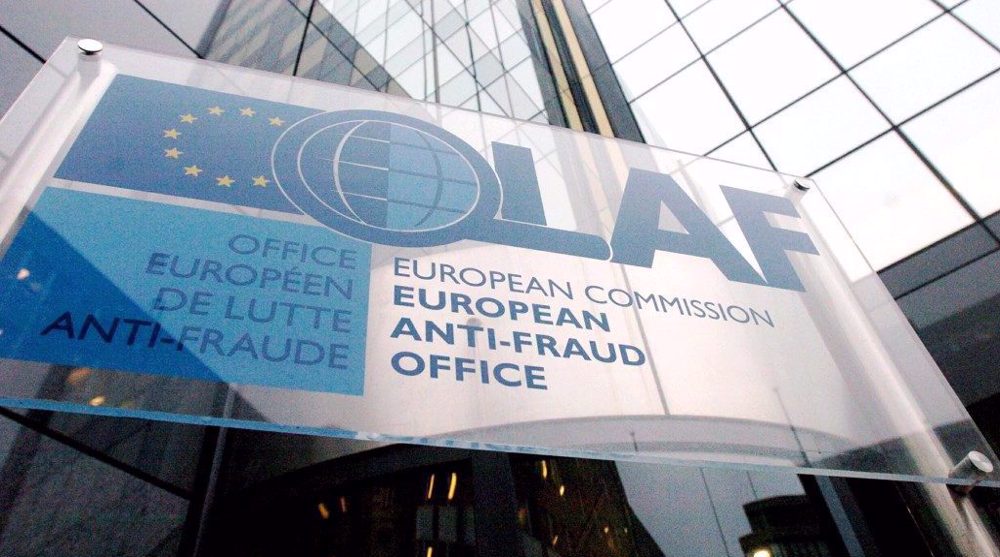Greek president promises to tackle poverty, joblessness
New Greek President Prokopis Pavlopoulos has promised to fight poverty and joblessness in the debt-ridden country, which is involved in talks with international creditors over its bailout program.
"We must all contribute to the fight against the scourges of poverty and unemployment," 64-year-old Pavlopoulos told reporters at the parliament in Athens, adding, "The fight being waged by Greece is not just for its people, it is for Europe itself.”
He made the remarks on Friday following a special ceremony before the parliament plenary, where he was officially sworn in as the president of the Hellenic Republic.
During another ceremony at the Presidential Mansion earlier in the day, the moderate conservative law professor replaced 85-year-old Karolos Papoulias as the seventh president of the country after the restoration of democracy in 1974 following a seven-year military junta.
"The great honor for me has already turned into a great responsibility. We should all contribute so that our country exits the crisis," Pavlopoulos said.
Greece has been at the epicenter of the eurozone debt crisis and is only slowly emerging from six years of recession, while harsh austerity measures have left tens of thousands of people without jobs.
Last year, the country had an unemployment rate of 26.4 percent and a poverty rate of 23.1 percent, according to the state statistics agency.
Pavlopoulos, who was handpicked by Greek Prime Minister Alexis Tsipras (pictured below), was elected to a five-year term in February by a wide parliamentary majority.

Greece’s eurozone exit
Also on Friday, the European Union's economic and financial affairs commissioner warned that a Greek exit from the eurozone would be a "disaster" for Greece and the bloc as a whole.
“We are probably all agreed in Europe that a 'Grexit' would be a disaster for the Greek economy, but also for the whole eurozone," Pierre Moscovici (shown below) was quoted as saying in excerpts released ahead of Saturday's publication of the German weekly Der Spiegel.

Moscovici further noted that the scenario of any country leaving the eurozone could be the "beginning of the end" for the common currency.
"If a country leaves this union, the markets will promptly ask the question, which country is next, and that could be the beginning of the end," the EU official said.
Moscovici made the comments a day after Germany’s finance minister said Greece may leave the 19-member eurozone if the administration in Athens fails to clinch a final agreement with its international creditors.
Speaking in an exclusive interview with German-language Austrian public broadcaster, ORF, Wolfgang Schaeuble said the possibility of Greece’s departure from the European Union’s monetary bloc cannot be excluded.
WWII compensations
This comes as the Greek Defense Ministry announced on Friday that the country would use a collection of documents related to Nazi-era Germany to press its claim for a World War II reparations payment.
"This archive contains over 400,000 pages... it will be used toward supporting Greek demands over German obligations in 1941-1944," the ministry said.
"These documents do not just substantiate a historic truth -- they are the documents of the Wehrmacht itself, the occupation forces," Junior Defense Minister Kostas Isichos stated.
On Tuesday, Tsipras said a bilateral reparation agreement reached in 1960 did not cover the outstanding Greek demands, including payments for ruined infrastructure, war crimes and the return of a forced loan all through the Nazi terror regime in Greece.
A Greek Finance Ministry report is said to have detailed evidence of casualties and material assets as well as compensation for the loan, which the Greek Central Bank was forced to give the Nazi regime in 1942.
While the Greek Finance Ministry does not list concrete figures, victims’ associations have suggested reparation payments of 160 billion euros (209 billion dollars).
The new anti-austerity Greek government, which is faced with resistance from EU paymaster Germany over a renegotiation of its bailout, has recently intensified pressure on Berlin over the controversial issue of war compensations.
Germany argues that the issue of reparations to Greece was resolved in the 1960 agreement.
Eurozone finance ministers agreed on February 24 to give Greece a four-month extension of its international bailout to avert the possibility of the country’s exit from the currency area.
But Athens will not get any of the cash until eurozone partners approve a list of reform measures proposed by Greece.
The Tsipras administration has tried to revise the terms of the country’s 240-billion-euro (270-billion-dollar) bailout it received from the troika of international lenders -- the European Central Bank, the International Monetary Fund and the European Commission -- in 2010.
MSM/AS/MHB
VIDEO | Press TV's news headlines
Trump floats ‘Dream Military’ fueled by record $1.5-trillion budget
Iran: US interventionism aimed at inciting violence, terrorism
VIDEO | Tunisian parties denounce Trump’s foreign policy as violation of intl. law
Trump’s immigration crackdown turns deadly; president says killer acted in ‘self-defense’
VIDEO | Trump renews highly aggressive rhetoric towards Iran
VIDEO | Transatlantic tensions: Greenland
VIDEO | Yemen’s Saudi-backed government expands control amid coalition strikes on separatists










 This makes it easy to access the Press TV website
This makes it easy to access the Press TV website